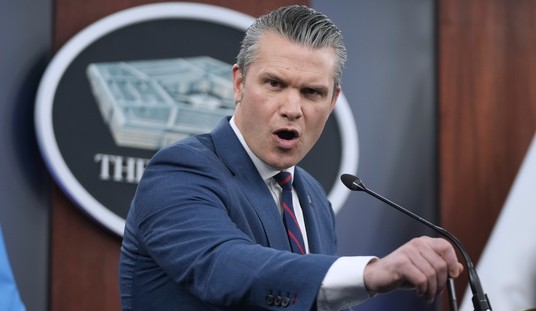I’ve written about Dr. Riittakerttu Kaltiala before. She was one of the leading doctors who dealt with pediatric gender identity patients in Finland and recently she’s become a critic of the model known as gender-affirming care. Monday, the Free Press published a lengthy essay by Dr. Kaltiala in which she outlines her personal involvement in this issue and what she believes about it now.
Her story really starts in 2011 when a group of Dutch doctors published a paper arguing that teens (primarily males) could be given hormones to prevent puberty and allow them to pass more easily as women. This became known as the “Dutch protocol” and it was adopted internationally.
Dr. Kaltiala was already working in one of two hospitals in Finland that handled adult gender identity issues so her department was put in charge of expanding this to teens in line with the Dutch protocol. Because she was already the chief psychiatrist, she became the head of it.
As the service got underway starting in 2011, there were many surprises. Not only did the patients come, they came in droves. Around the Western world the numbers of gender-dysphoric children were skyrocketing.
But the ones who came were nothing like what was described by the Dutch. We expected a small number of boys who had persistently declared they were girls. Instead, 90 percent of our patients were girls, mainly 15 to 17 years old, and instead of being high-functioning, the vast majority presented with severe psychiatric conditions…
Because what the Dutch had described differed so dramatically from what I was seeing in our clinic, I thought maybe there was something unusual about our patient population. So I started talking about our observations with a network of professionals in Europe. I found out that everybody was dealing with a similar caseload of girls with multiple psychiatric problems. Colleagues from different countries were confused by this, too. Many said it was a relief to hear their experience was not unique.
These conversations were happening in private but very little was said in public. Instead, the doctors went about following the Dutch protocol as expected. But they soon found the results were not what they’d been told to expect.
The young people we were treating were not thriving. Instead, their lives were deteriorating. We thought, what is this? Because there wasn’t a hint in studies that this could happen. Sometimes the young people insisted their lives had improved and they were happier. But as a medical doctor, I could see that they were doing worse. They were withdrawing from all social activities. They were not making friends. They were not going to school. We continued to network with colleagues in different countries who said they were seeing the same things.
In 2015, Dr. Kaltiala and her colleagues published a paper about what they were seeing. She said she hoped to spark a public discussion about what she knew others in the field were also seeing but that didn’t happen. Instead, the number of gender clinics kept expanding and in the US the idea of “gender-affirming care” was born. The gist of that concept was that doctors shouldn’t stand in the way of any teen or child who wanted to transition. They should be given drugs almost immediately. But around this same time Dr. Kaltiala noticed a new influx of patients.
Around 2015, in addition to the very psychiatrically ill patients, a new set of patients started arriving at our clinic. We began to see groups of teenage girls, also usually from 15 to 17 years of age from the same small towns, or even the same schools, telling the same life stories and the same anecdotes about their childhoods, including their sudden realization that they were transgender—despite no prior history of dysphoria. We realized they were networking and exchanging information about how to talk to us. And so, we got our first experience of social contagion–linked gender dysphoria. This, too, was happening in pediatric gender clinics around the world, and again health providers were failing to speak up.
By this point, she believes doctors were well aware that anyone who spoke critically about what was happening was going to be targeted and villainized by gender activists. But at Dr. Kaltiala’s insistence a medical board for Finland examined the evidence and in 2020 agreed that the country needed to walk back from providing hormones to adolescents.
Finland’s national medical body, COHERE, released its findings and recommendations regarding youth gender transition. It concluded that the studies touting the success of the “gender-affirming” model were biased and unreliable—systematically so in some cases.
The authors wrote: “In light of available evidence, gender reassignment of minors is an experimental practice.” The report stated that young patients seeking gender transition should be instructed about “the reality of a lifelong commitment to medical therapy, the permanence of the effects, and the possible physical and mental adverse effects of the treatments.”
The UK and Sweden have also come to reconsider their approaches to gender care for minors. But in America the gender-affirming care juggernaut just keeps going.








Join the conversation as a VIP Member